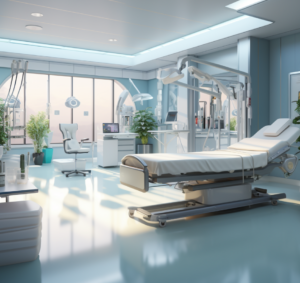The field of medicine is complex, and it requires the use of advanced and specialized equipment for diagnosis, treatment, and patient care. However, purchasing medical equipment can be expensive, especially for clinics, hospitals, and healthcare providers on tight budgets. In recent years, many healthcare providers are finding alternative ways to obtain medical equipment without breaking the bank. Two common options are renting or leasing medical equipment. In this blog post, we will explore the advantages of leasing medical equipment, versus renting medical equipment.
Cost
One of the significant advantages of leasing medical equipment is the cost. Leasing medical equipment is cost-effective and affordable for healthcare providers who may not have the funds to purchase equipment outright. When you lease medical equipment, you only pay for the equipment’s use and not its ownership. This can save healthcare providers a considerable amount of money. Additionally, leasing offers flexible payment options, making it easier for healthcare providers to balance their budgets.
Renting can be more expensive than leasing in the long run, as you usually have to pay a higher monthly rate and may incur additional fees or charges, such as delivery, installation, or insurance costs.
Additional, renting does not give you ownership or equity in the equipment, which means you cannot claim depreciation or tax benefits, and you have to return the equipment at the end of the rental period.
Maintenance and Repairs
Another advantage of leasing medical equipment is the maintenance and repair packages that accompany the lease agreement. Generally, leased equipment comes with maintenance and repair services as part of the lease agreement. This saves healthcare providers the time and hassle of finding and paying for maintenance and repair services out of pocket.

Up-to-Date Equipment
Leasing allows you access to advanced equipment that may have been beyond your budget. Medical equipment is always evolving and improving, and healthcare providers need advanced equipment to stay competitive and provide the best care for their patients. When leasing medical equipment, you can have up-to-date equipment financed with low monthly payments. This means your clinic or hospital is equipped with the latest technology, which has been proven to improve patient outcomes.
Tax Advantages
Leasing medical equipment can be tax-deductible. Leasing is considered an expense, and it can be deducted from your taxes. This means that healthcare providers can lower their taxable income and reduce their tax liability. Additionally, leased equipment does not show up on your balance sheet, which will not affect your credit rating. This is advantageous for healthcare providers who are looking to secure loans or financing in the future.
Renting does not give you ownership or equity in the equipment, which means you cannot claim depreciation or tax benefits, and you have to return the equipment at the end of the rental period.
Flexibility
Leasing medical equipment offers healthcare providers the flexibility they need to operate their businesses effectively. Leases are customizable and can be tailored to suit a healthcare provider’s unique needs.
Disadvantages:
Renting may have limited availability, as the equipment you need may not be in stock or may be in high demand, especially during peak seasons or emergencies.
Leasing medical equipment has many advantages over renting medical equipment. The cost-effectiveness of leasing, maintenance and repair services, access to up-to-date equipment, tax advantages, and flexibility are just some of the benefits of leasing. If you are a healthcare provider looking for ways to stay competitive and provide the best care for your patients, consider leasing medical equipment with Madison Capital. We offer a range of leasing options designed to meet your unique needs and budget.
Madison Capital has experience working with healthcare providers, and we understand the demands of the industry resulting in a more personalized leasing experience, which can help healthcare providers run their businesses with more control and less stress.




